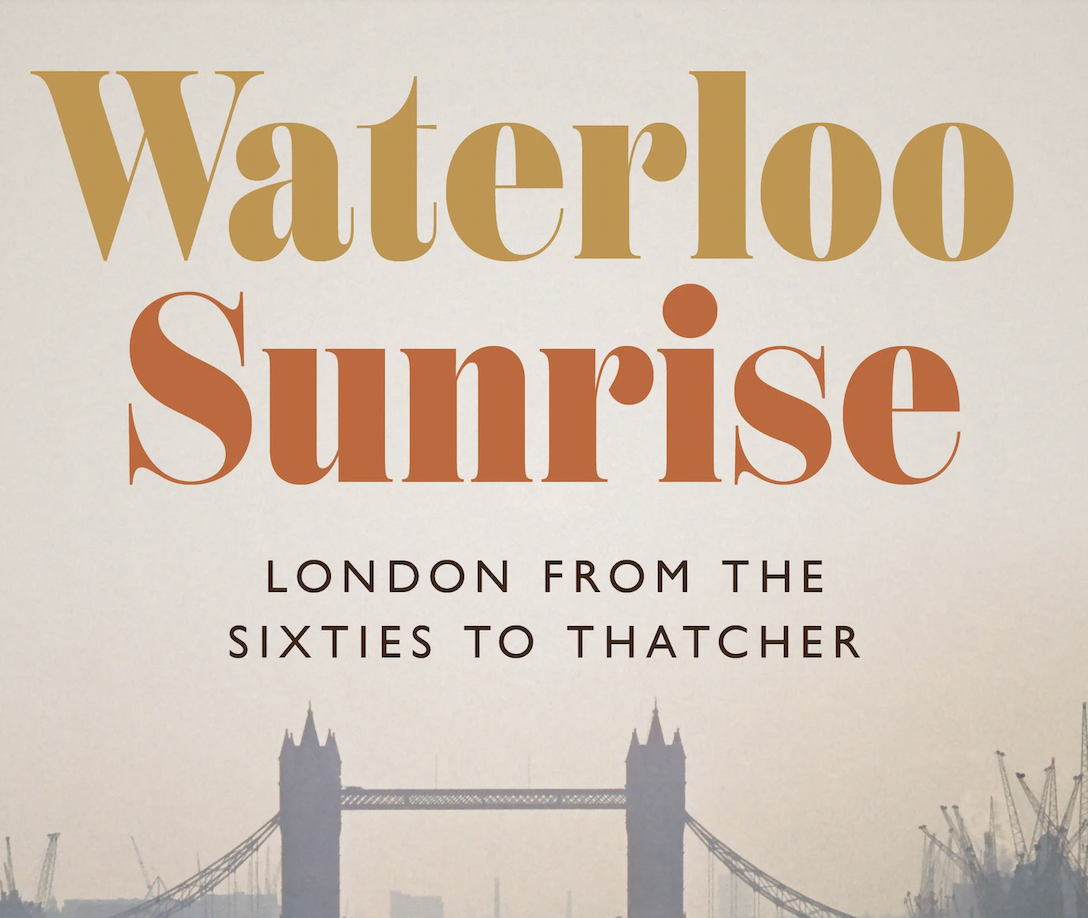Post
BOOK REVIEW | Waterloo Sunrise London from the Sixties to Thatcher
28 Jun 2023
By John Davis
Reviewed by Barry Coidan
Underneath the drab loose-leaf cover of this book is a brilliant yellow hardback cover. What does that mean? Within its 434 pages some alchemy turns the drab 1970’s into London’s apotheosis...
I love the book – it’s a 400-page plus page turner. Smutty Soho in the 60’s and 70’s. How porn nearly killed Soho, but we got tired of acres of tits and bums. How “swinging “sixties fashion and its quirky boutiques were swallowed up by men in suits and calculators.
Each episodic chapter is full of detail. “The Delights of the Palate” charts London’s taste from greasy spoons for us plebs and fine dining for those with silver spoons to a democratisation of eating. Prof Davis charts the arrival of the Italian trattoria in trendy Chelsea in the late 50’s early 60’s to an explosion of eateries of all sorts, Greek, Chinese, Russian, Armenia? Along with the franchises that now dominate our high streets.
Interested in joining The London Society? Click here
London between the 60’s and 70’s was a sorrowful place. High inflation, deindustrialisation and rather useless, out of date local authorities saw our great city rudderless. The Professor charts the demise of the working-class East End. Entrenched local authorities desperately trying to hold back “progress”. A highly industrialised city to one where the young worker would more likely be using a typewriter rather than a steam hammer. The labour London Authorities weren’t having that – keeping the jobs that no longer exist was their cry and their solidly Labour voters melted away as they moved to suburbia and retirement.
Much of Prof Davis’s steely eye is on youth. Youth in the 60’s and the image of swinging London. Youth transforming the labour market. Youth (and middle class) buying up seedy Victorian heaps and turning rundown areas into Habitat oases. Youthful radical politicians upturning Labour’s old, paternalistic leaders who saw the solution to every problem as more badly build council flats and taxpayer subsidies.
I’m not convinced that much of the radical change in the 60’s was because the not so extremely wealthy moved out of Mayfair and bought up artisan cottages in Chelsea, but it makes a fine narrative. According to Prof Davis, London’s eclectic eating out started in Chelsea, as did the “gentrification” of places as diverse as Finsbury Park and the Elephant and Castle.
The chapter on the London cabbie is fun. Independent, edgy, confrontational –possibly owning his own house and business – stepped out of the pages. In the Professor’s eye – a Thatcherite in the making.
Check out the Society’s current rundown of upcoming events
Despite the economic travails of the 60’s Londoners saw their wealth and disposal income grow – except for those that it didn’t. We see the average Londoner doing better – consuming with the rise of shopping malls like Brent Cross. In the dark economic days of the 70’s the poor got poorer, the less poor less so. Professor Davis sees this bifurcation as the beginning of the increasing gap between those who have and those who don’t. I glimpsed in his comment the thought that Thatcherism extenuated this divide.
I loved the book, I loved the detailed comments – Simon Jenkins and The Evening Standard were excellent sources, but… I thought Professor Davis was trying, by interrogating the 60’s and 70’s, to explain Thatcher. This is weird because in the last chapter he denies doing that.
Hey, I’m just a book reviewer what do I know? Loved the yellow hardcover.
